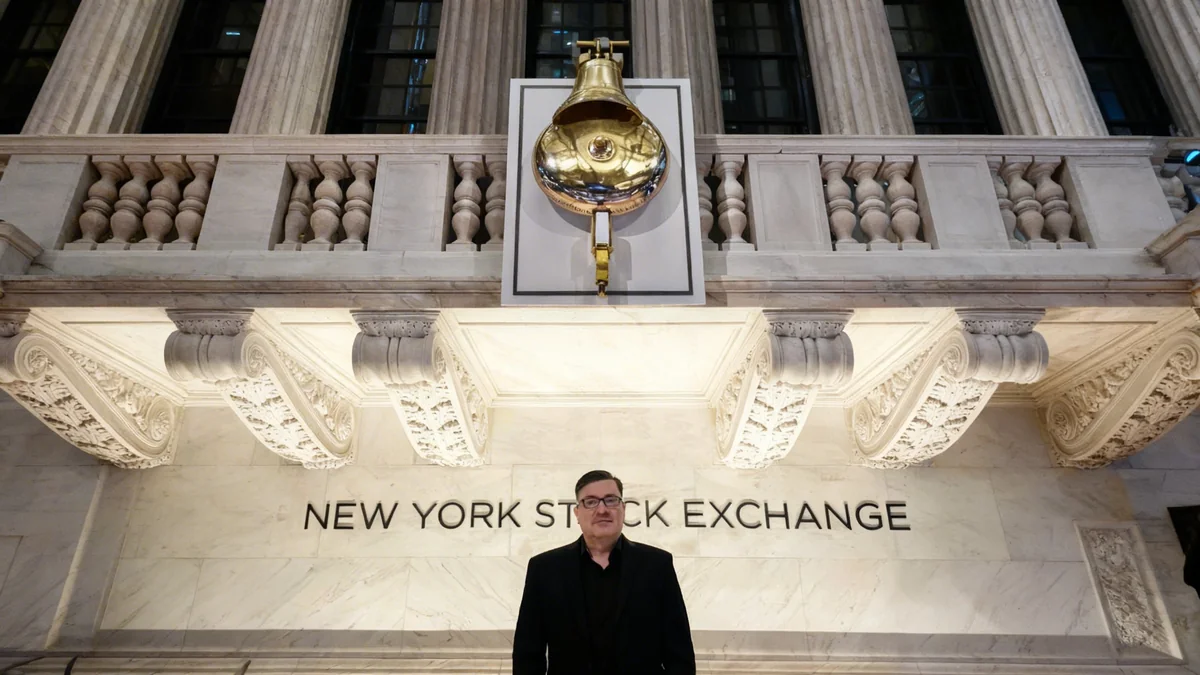As Sonoma real estate developer Ken Mattson faces federal charges for allegedly operating a multi-million dollar Ponzi scheme, the lender that financed much of his property empire, Socotra Capital, has come under intense scrutiny. Federal prosecutors have indicted Mattson on nine counts, including wire fraud and money laundering, while bankruptcy proceedings reveal Socotra Capital's deep financial ties to the accused mogul.
Key Takeaways
- Real estate developer Ken Mattson has been indicted on nine federal counts, accused of running a Ponzi scheme that defrauded investors of tens of millions of dollars.
- Sacramento-based lender Socotra Capital provided at least 92 high-interest loans to Mattson's companies, totaling over $102 million.
- Socotra Capital, which denies any knowledge of the alleged fraud, is now a primary focus of a creditors committee in the ongoing bankruptcy case.
- Investors fear Socotra's status as a secured creditor could place it ahead of them for repayment from the sale of Mattson's assets.
Federal Indictment Alleges 'Classic Ponzi Scheme'
Federal prosecutors have charged Ken Mattson with orchestrating a fraudulent scheme that spanned at least 15 years. The indictment, filed in May, includes nine counts of wire fraud, money laundering, and obstruction of justice. The government alleges Mattson bilked hundreds of investors out of tens of millions of dollars.
The case centers on Mattson's real estate acquisitions in and around Sonoma, where his company, KS Mattson Partners, acquired at least 88 properties by 2023. Many of these purchases, according to prosecutors, were financed through fraudulent means. Mattson and his childhood friend, Tim LeFever, co-founded LeFever Mattson Inc. in 1989, a company that also holds numerous properties involved in the case.
The collapse of this real estate portfolio has led to bankruptcy proceedings for KS Mattson Partners, LeFever Mattson Inc., and Mattson himself. The legal fallout now involves not only Mattson but also the financial institutions that enabled his rapid acquisition of properties.
What is a Ponzi Scheme?
A Ponzi scheme is an investment fraud that pays existing investors with funds collected from new investors. Organizers often promise high returns with little or no risk. The scheme requires a constant flow of new money to survive and collapses when it becomes difficult to attract new investors or when a large number of existing investors cash out.
Socotra Capital's Central Role in Financing
At the heart of the financial web is Socotra Capital, a Sacramento-based hard-money lender. According to court documents, Socotra provided at least 92 loans to KS Mattson Partners starting in 2017. The lender currently holds deeds of trust on 75 properties linked to Mattson's companies, with outstanding loans totaling $102.3 million.
The federal indictment makes a clear reference to the lender, identified as "LENDING ENTITY 1," stating it loaned more than $180 million to KS Mattson Partners between 2011 and 2024. Socotra Capital has not been charged with any wrongdoing and maintains it was unaware of Mattson's alleged activities.
"With regards to KS Mattson, we had no knowledge or involvement in Mattson’s alleged wrongdoing. Socotra acted appropriately and in accordance with the law at all times," a company spokesperson stated in an email to The Press Democrat.
The company specializes in hard-money loans, which are secured by real estate and feature faster approval times but significantly higher interest rates than conventional bank loans. Records show that interest rates on Socotra's loans to Mattson ranged from 9.35% to 13.75%, compared to typical bank mortgage rates of 5% to 6.5%.
A Significant Portfolio Share
In an April 2024 newsletter, Socotra revealed to its investors that "one borrower and its affiliates"—widely believed to be Mattson—held approximately $40 million in loans in a single investment fund. This represented more than half of the fund's entire portfolio, with about half of that borrower's loan value being delinquent at the time.
Alleged Mechanisms of the Fraud
Court filings and the federal indictment describe several methods Mattson allegedly used to leverage Socotra's loans to generate cash and encumber properties. One alleged tactic involved transferring a property from LeFever Mattson Inc. to KS Mattson Partners, securing a large loan from Socotra, and then immediately transferring the property back, now burdened with new debt.
This type of transaction allegedly occurred with at least 19 properties. For example, a property in Truckee was transferred between Mattson's entities on the same day, a move that allowed Mattson to take out a $990,000 loan from Socotra while his company pocketed $950,000 in cash after fees.
'Cash-Out' Purchases and Investor Deeds
Prosecutors also allege Mattson performed "cash-out" real estate purchases, where he secured loans from Socotra that exceeded the property's value. In one Sonoma transaction, KS Mattson Partners purchased two parcels for $3 million but obtained a Socotra loan for $3.56 million, walking away with nearly $500,000 in cash.
A separate class-action lawsuit filed by investors claims Mattson would convince them to deed their property shares to his company under the pretense of refinancing. Instead, he would allegedly take out a new hard-money loan, often from Socotra, and frequently failed to return the investors' names to the property deeds.
Scrutiny from Creditors and Legal Challenges
A creditors committee, formed to represent the interests of those who invested with Mattson, is now heavily scrutinizing Socotra Capital. The committee received court authorization to subpoena a wide range of Socotra's internal documents and conduct examinations of its executives, including CEO Adham Sbeih.
The lender's connection to a controversial bank account is also under review. Forensic accountant Bradley Sharp, who is overseeing LeFever Mattson, reported that Socotra was paid more than $20 million from the "1059 account," a shadow fund Mattson allegedly controlled without the knowledge of other company executives. In contrast, all other lenders combined received just $12 million from this account.
Despite the scrutiny, Socotra has positioned itself as a primary creditor in the bankruptcy, filing claims totaling $106.5 million. Its status as a secured creditor could place it at the front of the line for repayment, ahead of the individual investors who lost their savings.
"As someone whose life savings has been swallowed up, their business model seems clear evidence that parameters and hoops are an essential part of a just system," said Matt Treger, who invested with Mattson for over 15 years.
The 'Ponzi Presumption' Looms
A significant legal question hanging over the case is whether the bankruptcy judge will apply the "Ponzi scheme presumption." If the court determines Mattson's operation was a Ponzi scheme, it could allow for the clawback of funds paid to creditors, even those who acted in good faith. Such a ruling could challenge Socotra's ability to recover its funds.
The creditors committee has already gained the right to pursue legal action against Socotra. While no lawsuit has been filed, mediation meetings were scheduled in an effort to avoid what could become a protracted and expensive legal battle over who gets paid first: Ken Mattson's preferred lender or his alleged victims.





